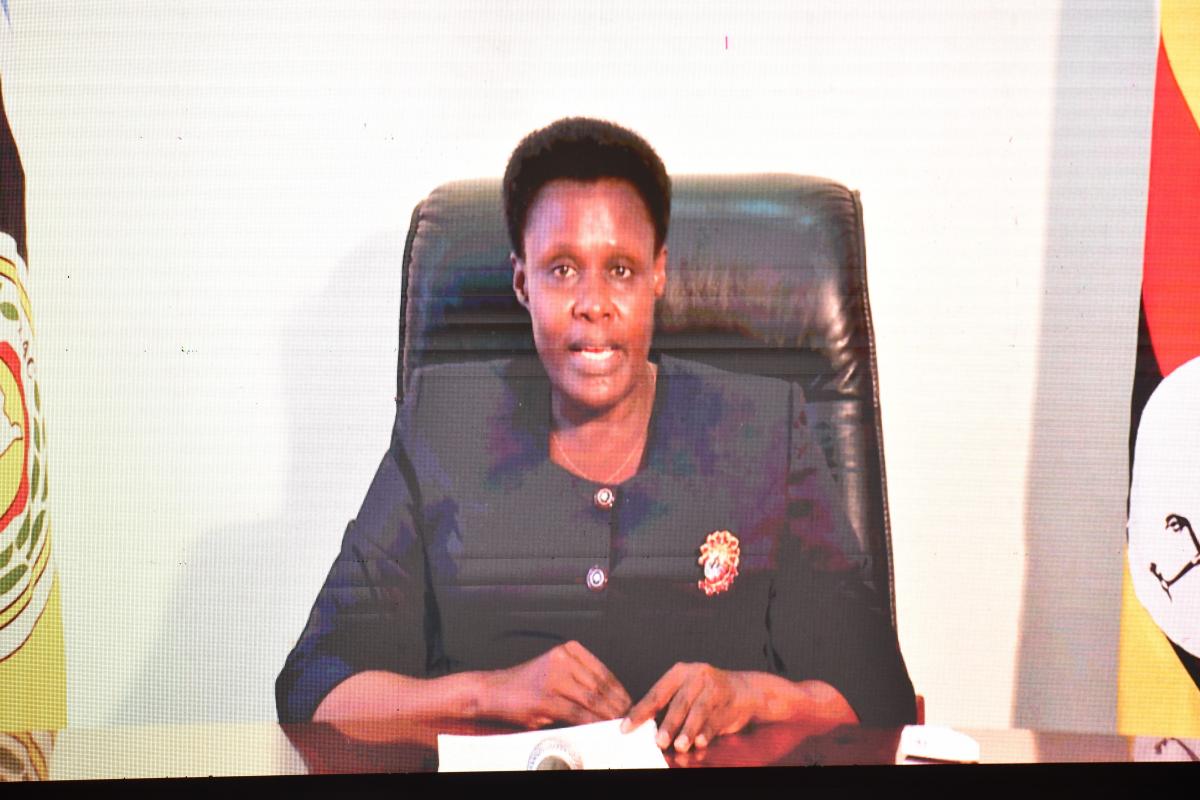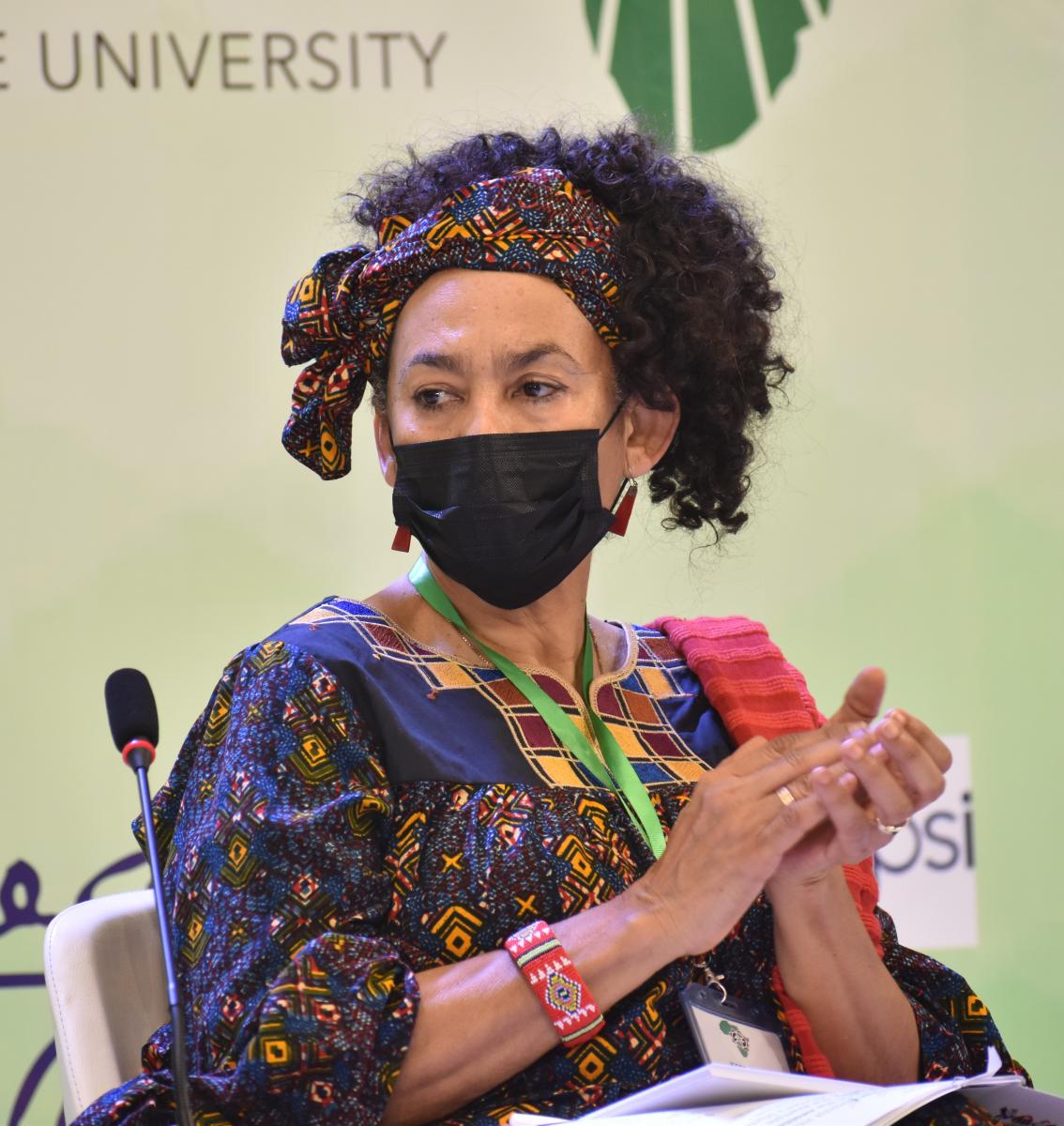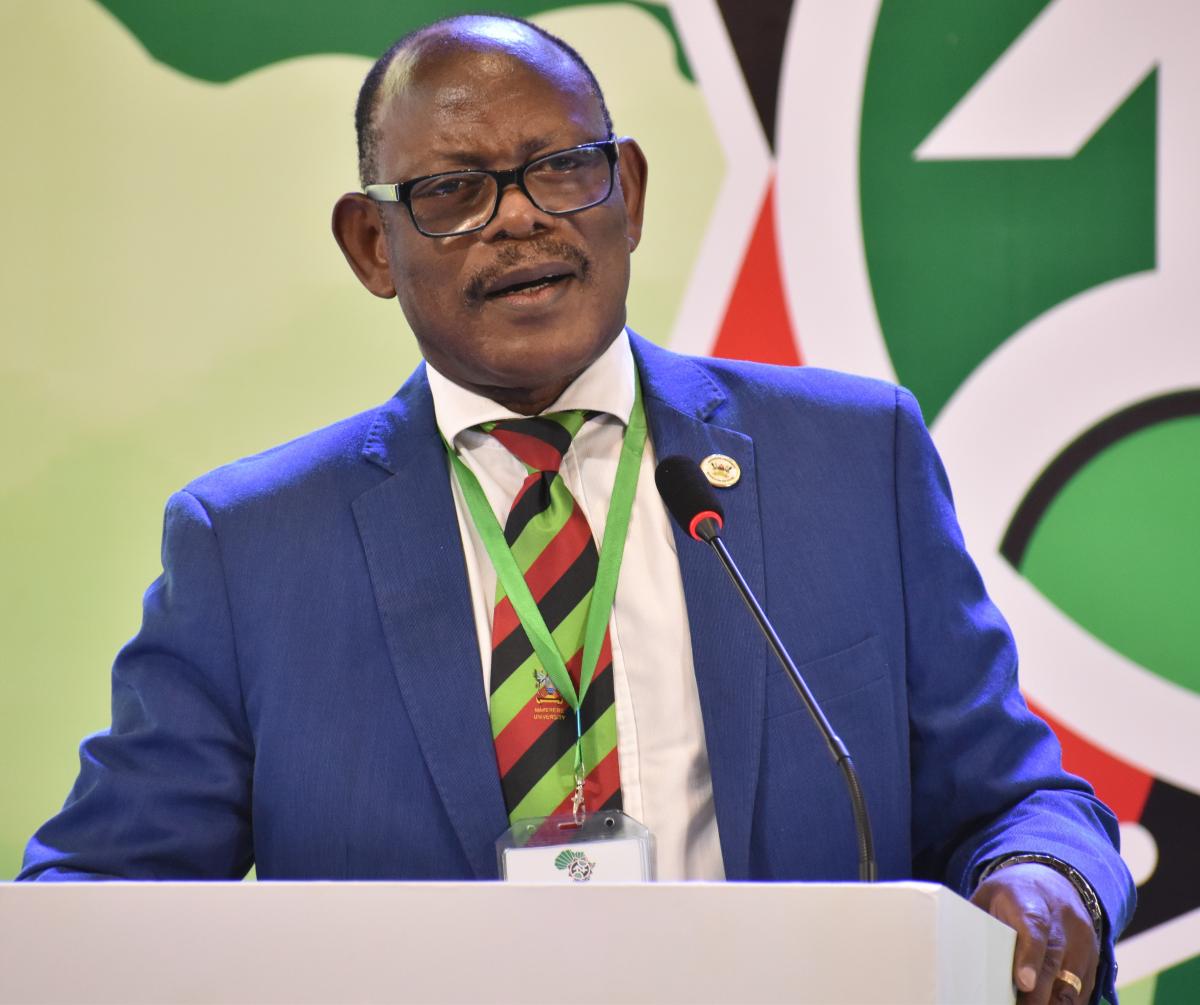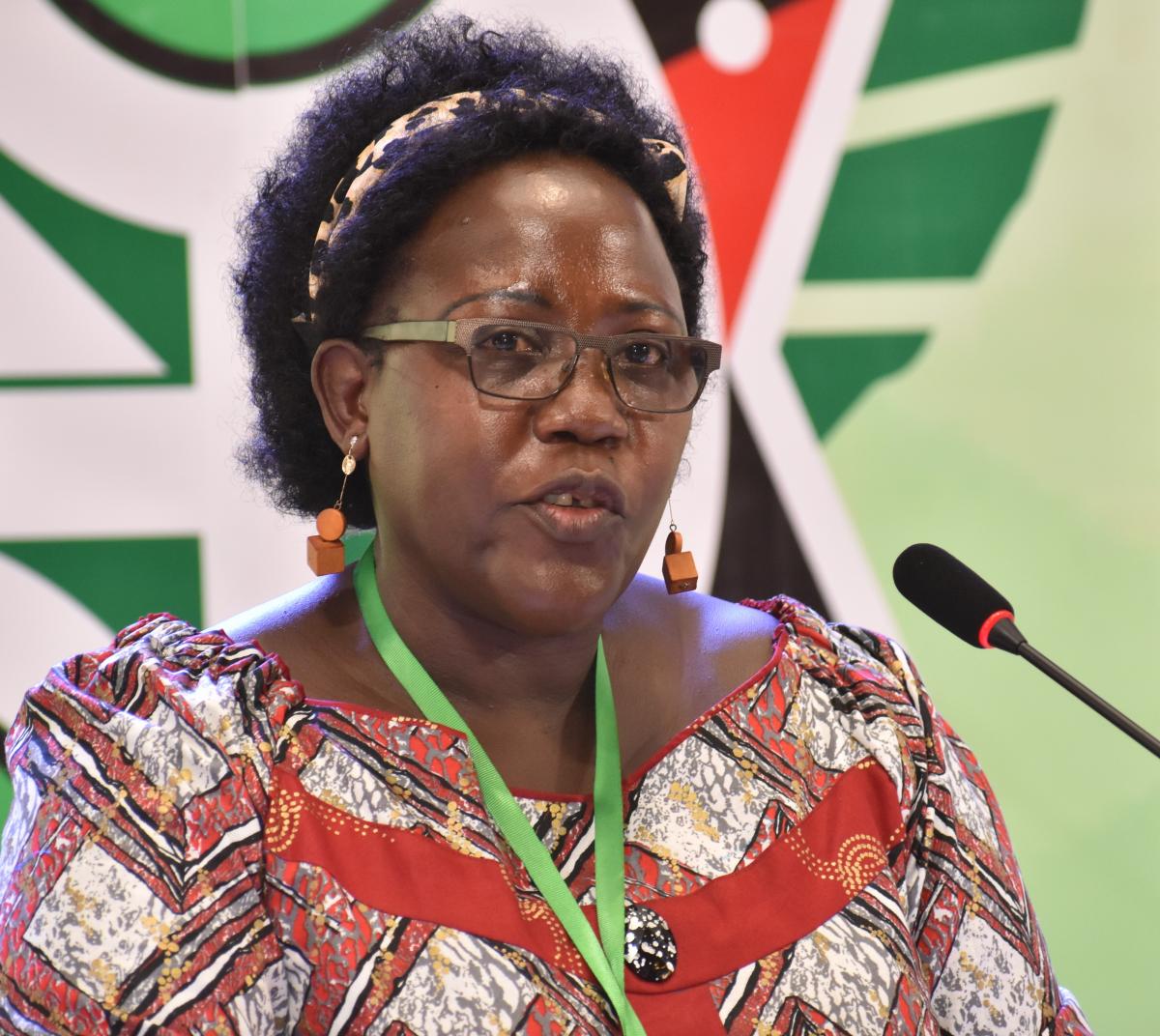
The First Lady and Minister of Education and Sports Hon. Janet K. Museveni represented by the Vice President of the Republic of Uganda H.E. Jessica Alupo on 23rd February 2022 officially opened the International Conference on Gender Studies in Africa (ICGSA) at Makerere University.
The conference was organized by the College of Humanities and Social Sciences (CHUSS) through her School of Women and Gender Studies (SWGS) as part of the celebrations to mark the 30 years of the School’s existence. SWGS was the first and remains the biggest School of Women and Gender Studies in Africa.

The conference was also organized as part of the celebrations to commemorate a century of excellent service to humanity by Makerere University. The conference was organized as a platform for Gender Scholars the world over to network, share experiences and establish lasting collaborations that will shape Gender Studies in Africa.
Among issues on the agenda was the reflection on teaching of gender studies and how to improve it, gender focused research, how gender has been applied in the field of practice as well as impact and benefits of gender studies in Africa.
The conference brought together more than 480 papers from African scholars with an endorsement of more than 30 gender studies programs on the continent and beyond. These have come from universities all over Africa and in the diaspora with representations from the USA, Canada, UK, Hungary, Czech Republic, Israel, India, Australia, and Latin America among others.
The Dean School of Women and Gender Studies, Assoc. Prof. Sarah Ssali in her introductory remarks acknowledged that the School’s establishment in November 1991 was a result of a protracted struggle by the Uganda Women’s Movement, particularly organisations such as Action for Development (Acfode) and the Makerere University Women’s Association.
“These organisations and others that have come on board like UWONET, UN WOMEN and the rest have continued to nurture the School. For example Acfode and UN WOMEN in particular have are even part of the funding of this event,” The Dean lauded.
She paid tribute to former heads such as Prof. Maxine Ankrah, Prof. Victoria Mwaka, Prof. Joy Kwesiga, Prof. Rosemarie McNairn, Prof. Grace Bantebya Kyomuhendo, Prof. Consolata Kabonesa, Prof. Josephine Ahikire on whose shoulders the School has stood throughout its 30year journey.
Assoc. Prof. Ssali acknowledged that the 30year celebration was not simply a Makerere affair but a Pan-African celebration, in appreciation of various actors who have in the recent past contributed to the debate on what neoliberalism has done to the academy, including the teaching of gender studies.
“Several meetings have been held to make sense of what these challenges mean for the academia and particularly for the discipline of gender studies. And it was at one such meeting convened to discuss the effect of neoliberalism on gender studies in the academy in Africa held in Bellagio, Italy in August 2019 that the need to discuss the peculiarities of the discipline faced in a neoliberal Africa gained traction.
This Conference was endorsed by several gender units in Africa and today we are happy to have some of those who attended the Bellagio meeting such as Prof. Amina Mama and Prof. Joy Kwesiga physically joining us for these three days.” Assoc. Prof. Ssali said.
The keynote address on, “Gender Studies in Africa-Current status and Developments” was delivered by Prof. Amina Mama, from the Institute of African Studies, University of Ghana.

Prof. Mama address dwelt on the history of womens’ resistance to oppression as a source of gender studies and what motivated women to organize, come to university, start gender studies and create space for girls and women to mitigate their suffering .
Feminism according to Prof. Mama responds to male supremacy and the system of gender that is colonially beguiled to Africa that keeps men and women down and opposed to one another instead of familiarizing to and learning from one another.
Prof. Mama stressed the need for Africans scholars to study, know and write their own history and to broaden their perspectives noting that without knowing their routes, they may not know their future..
She observed that the median age of Africa is 19 with the youngest age but with 90 % of her potential not realized.
She pointed out that the number of youth unemployed is growing and even in their earlier retirements, there is no system to absorb their energy to ensure that the live a decent life.
Prof Mama also decried Africa’s governments captivity to debts paid by people leaving in poverty.
“So we have to do something serious and education is part of it. We have to educate people and equip them with skills to manage the future. The global focus contradicts but we need to take serious account of our situation and the fact that this poor continents’ brains and resources are flowing from Africa to the West.
So the constant drainage of our public sector and infrastructure should be in the global economic doctrine, they defeat all our aspirations to become a whole people and thriving community of our people”. She said.
For women, the professor said, there are particular things excluding them including rivalry from men and mens’ fear of women that makes men oppressive to find the right direction.
She said men and women need to be realized and be educated about these colonial attitudes including more communication and mutual respect for one another.
In her opening remarks virtually read for her by the Vice President Hon Jesica Alupo, the Minister of Education and Sports applauded the School of Gender and Women Studies for managing to achieve a leading and unique position in global gender and feminist studies describing it as the biggest in Africa and one that has achieved in terms of teaching, research and service to the community as well as supporting sister universities and colleges across Africa to establish units to address issues of gender inequality and poverty.
Mrs. Museveni noted that although Africa is endowed in terms of natural resources and powered by a potentially dynamic youthful population, the continent will not take her place at the table with other nations until her women, who form half of her population are liberated and enabled to fully participate in the development of the continent.
“Gender inequality significantly hinders the ability of individuals to participate fully and contribute to their families and communities-economically, politically and socially. Gender inequalities limit the ability of women and girls to fully participate in and benefit from development programs in our nations. Institutions such as patriarchy, religion family and marriage as well as social and cultural practices continue to play a major role in perpetuating gender inequalities”, Part of the speech read.
The Minister pointed out hindrances such as policy making approaches in the sector of higher education which continue to reinforce images of women in one field and men in another and urged governments to be cautious of the gaps and weakness in policy making.
“New approaches must be adopted to enable us change history, customs and traditions of college admissions which still largely favor men, and enable us address the conundrum of gender inequality in higher education system.
Such approaches should seek to achieve gender equality in institutions of higher learning, tackling specific system imbalances that still manifest and plague such institutions. The absence of gender balance in such areas will continue to discourage social advancement and empowerment of disadvantaged groups in the population, specifically women”, the Minister advised.
The other issue of concern according to the Minister is the family and healthcare dynamics that have long-term implications for children as they grow up. She said, achieving gender equality that facilitates health starts with putting the mother and child at the center and prioritizing health at home and in the clinic by supporting breast feeding, and promoting safe and family –friendly access to primary health care.
The Chairperson, Makerere University Council Mrs. Lorna Magara said Makerere University initially started as a male-dominated institution with the motto, “Let us all be men.” The terrain she said, gradually changed, and so did the motto, which later became “We Build for the Future,” as more women were admitted. Mrs Magara reported that, it was in the 1990s when the University started pursuing definite steps towards a broader gender agenda.

“Today the University boasts of the School of Women and Gender Studies, a Gender Mainstreaming Division, a Gender Equality Policy, and an Anti-Sexual Harassment Policy. The University has also championed affirmative action for females entering the university, including a 40% enrolment of females in STEM disciplines. The School of Women and Gender Studies has been at the center of this advancement, starting from its role in forming the Gender Mainstreaming Directorate to track Makerere’s progress in mainstreaming gender in its systems and processes”, Mrs. Magara stated.
The Council Chair also said, the School has not only produced a critical cadre for the government’s Gender Mainstreaming agenda, but it has also trained human resources for other countries on the continent and beyond. Many of its products hold significant positions in academia, government departments, and non-government entities.
“This celebration, therefore, is not just for the School, but a Pan Africa and indeed global celebration, with all the sister institutions that the School has walked with over the years. A Pan African celebration of gender studies is essential for nuance about gender, genders studies, and gender practice”, Mrs. Magara said
She expressed hope that in addition to providing a platform for acomprehensive review of gender studies in Africa in all aspects of teaching, theorizing, research, and practice, the conference also offers an opportunity to develop frameworks that will be used to study the unique scenarios as a continent, strengthening collaboration between academics and practitioners as we chart the path that will transform the continent.
The Vice Chancellor Makerere University, Prof. Barnabas Nawangwe observed that in order for Africa to move to a middle income status and achieve sustainable development, human capacity development must be put at the fore.

Prof. Nawangwe stressed the need to ensure that issues of gender, historical injustices and women empowerment are tackled acknowledging that the interventions made by Uganda in this matter have already produced positive results.
Nawangwe reported that the School of Women and Gender Studies has been at the forefront of empowering women through her academic programmes and research.
“The School hosts one of the thirteen centres of excellence of the African Research Universities Alliance (ARUA) – the Centre of Excellence in Notions of Identity. Through this Centre and other programmes, the School is making a major contribution to understanding the role of gender in socio-economic development. The research conducted in the School is informing policy on gender issues. The students, who have gone through the School are making a difference in society”, the Vice Chancellor said.
Prof. Nawangwe advised that as the university celebrates the thirty years of the School, there is need to pause and reflect on achievements made and the challenges still faced and opportunities that present themselves.
With the strategy of becoming a fully research-led University by 2030, Prof. Nawangwe expressed the need to double efforts in research on women and gender issues, find solutions that still deter human development, including issues around domestic violence and exploitation of labour by women, including unpaid domestic work by house wives.
The Vice Chancellor also expressed the need to continue to interrogate the factors that still hinder women participation in science, keeping in mind that a woman, Valentina Tereshkova was the second person to undertake a sole trip into outer space and that another woman, Marie Curie is one of the greatest chemists of all time.
Prof. Nawangwe acknowledged that many African women have set the pace for women participation in science, adding that there is no reason why African women cannot take the lead in science and technology.
Nawangwe stressed the need to carry out research and formulate policies that will unlock the huge potential of women in transforming society and taking advantage of their big numbers to create a critical mass of scientists to move the Continent’s development agenda forward.
“Makerere University remains committed to the promotion of women in all spheres of university life. Over the last two decades, through our affirmative action policies, the enrolment of women students has increased from 15 % to 51% and the participation of women in academic and administrative leadership has grown from 5% to 35%.
Three out of the nine college principals are women, our new Grants Administration and Management Support unit is headed by a woman and our biggest research portfolio is also headed by a woman. We must be the example that our Continent needs to transform our society through total emancipation of our women from marginalisation. This we will do with all the resources available to us. I wish all the participants a fruitful workshop”, The Vice chancellor pledged.
The Principal College of Humanities and social Sciences Associate Professor Josephine Ahikire thanked the university and college management, the staff and students for beating all the odds of COVID 19, budget cuts and the malaise to organise the celebrations.

“30 years is no mean achievement. The school has been able to emit transformational energy, in terms of curriculum development, teaching and learning, research, and knowledge transfer informed by critical thinking.
The alumnus of the school has played a critical role in government ministries, agencies and departments and many institutions and women group organisations making a difference in society”, The Principal said.
Dr. Ahikire said the School of Women and Gender Studies is one of the college’s youngest unit established in 1991 that used to be small but mighty, and has given impetus to the college advocating and promoting gender studies as a cross cutting course permeating through all courses in the college.
She reported that the discourse of gender has been selected as a legitimate consideration that encompasses all human narratives. The Principal thanked the university management for the institutional support to research and courses that enjoin students at graduate and undergraduate level.
“Management has offered that leadership in mainstreaming gender studies across all units so that we have an institutionalised approach to fighting sexual harassment which is no longer taken for granted.
We appreciate the commitment and the fact that management has been supportive in research and innovations to the point of negotiating research from government that has enabled a lot of research across the university”.
Dr. Ahikire also appreciated the gender scholars and activists for investing the energy in making a community of women scholars in Africa.
